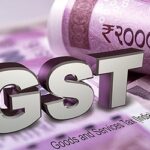The taxpayer’s argument is that the expenditure on foreign travel should not be disallowed because it was incurred to secure donations from donors who were located abroad. The taxpayer has provided evidence of Foreign Contribution Regulation Act (FCRA) receipts for the relevant assessment year, which were submitted along with the records. It is evident that the taxpayer has received significant donations from foreign sources, including agencies such as the Silicon Valley Foundation and Global Giving. A chart containing the details of the foreign travel expenditure, along with its purpose, has been enclosed for reference. Additionally, records showcasing the donations received and their utilization have also been included.
Based on the specific circumstances of this case, it has been determined that the expenditure of Rs. 3,18,866 incurred for foreign travel was directly related to obtaining donations from various donors who were located abroad. Furthermore, it has been established that the utilization of these donations was in alignment with the objectives of the trust. Consequently, the foreign travel expenses incurred by the taxpayer are deemed allowable as expenditure. This decision was made in favor of the assessee in the case of Agastya International Foundation v. ACIT (2023) 152 taxmann.com 11 (ITAT Bangalore). It should be noted that this ruling pertains to the assessment year 2016-17.
In summary, the taxpayer successfully argued that the expenditure on foreign travel should not be disallowed. They provided evidence of the FCRA receipts, demonstrating substantial donations from abroad, and detailed records of the foreign travel expenditure and its purpose. Taking into account the foreign donors’ contributions and the utilization of the donations for the trust’s objectives, it was determined that the foreign travel expenses were allowable as expenditure. This decision was rendered in the aforementioned case, with the ruling favoring the assessee.







